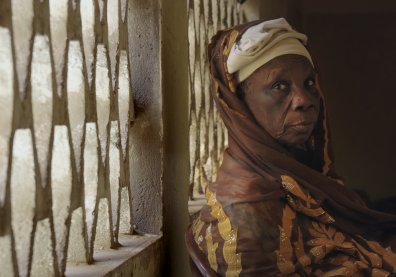Regards comparés : environnements, changer d'air(e) - Landscaping

1:45-2 pm
- Introduction by Julien Vercueil, Inalco's delegate vice-president for valorization and environmental responsibility.
2-3:15 pm
- Oil wells in Baku. Vue d'ensemble, France | 1898 | 1 min | silent
A film by'Alexandre Michon, operator of the Frères Lumières (France)
First cinematographic images of an oil well on fire. The scene was filmed in the Bibi-Heybat oil field near Baku, the current capital of Azerbaijan, formerly part of the Russian Empire.
- Oil wells in Baku. Close-up view, France | 1898 | 1 min | silent
A film by Alexandre Michon, operator of Les Frères Lumières (France)
Close-up shot of an oil well on fire at the Bibi-Heybat extraction field.
- Extraction of iron ore in the Urals, France | 1912 | 2,20 min | silent
Collection : Gaumont, teaching series
Open-cast mine, where, in precarious conditions, children, women and men extract the ore which is then transported by waggon to the smelter.
- Les Mines de l'ancienne Russie, France | shot 1917 | 14 min | silent
Collection : Journal Actualité Pathé
Montage made, at an unspecified period, from cinematographic images and still shots of Russian factories, mines and oil fields taken just before the 1917 revolution. The film implies that human, machine and environment are at the service of Russian industrialists and foreign investors alike.
- Japanese silk industry, France | 1914 | 10 min | silent
Collection : Pathé, film d'enseignement
Detailed description of industrial silk manufacturing in the Japanese Hara filature factory, from cocoon to reel to reel.
- Brick factory in Dakar, France | 1930 | 5 min | silent
Collection : Pathé actualités
From sand extraction to the industrial manufacture of reinforced concrete bricks and pipes for the Dakar city development works.
- Œuvre de la France dans domaine colonial / La France d'outremer, France | 1937 | 6 min | sonore
Collection : Pathé, journal actualités
Propaganda film to the glory of French colonial possessions and their economic potential on a global scale, for industrial development and local human labor. Warning, the commentary may shock viewers.
Discussion in the presence of Béatrice de Pastre, deputy director of CNC Heritage and director of CNC Collections and Sandrine Joublin, head of audiovisual collections, Gaumont Pathé Archives.
3:15-4:45 pm
-
Moruroa Papa, France | 2002 | 63 min | vof
A film by Paul Manate Raoux (France)
"My father worked at Moruroa in the 70s. Today, I'm visiting him with his family on Rurutu, a small lost island in French Polynesia where he isolated himself, with my mother, his dogs and his memories. I'm resurrecting this secret past that questions me today." (Paul Manate Raoux)
Discussion in the presence of director Paul Manate Raoux and Renaud Meltz, university professor of contemporary history at the University of Haute-Alsace, director of research at CNRS and holder of the SOSI Observatoire des héritages du Centre des Expérimentations du Pacifique, moderated by Sarah Mohamed-Gaillard, lecturer in contemporary history at Inalco.
Coffee and tea break
5:15-7:15 pm
- Liti Liti, France | 2025 | 76 min | vostf
A film by Mamadou Khouma Gueye (Senegal)
"Guinaw Rail, a forgotten commune on the outskirts of Dakar, is emptying out. Bulldozers are attacking houses along the route of the Regional Express Train, the symbol of President Macky Sall's "Emerging Senegal". Before it disappears and is transformed altogether, the director films his childhood kingdom as well as his mother, who unwinds the thread of a life behind the Rails." (Visions du Réel)
Discussion with director Mamadou Khouma Gueye, in duplex, moderated by Alice Chaudemanche, lecturer in Wolof language and literature at Inalco.
7:30pm-9:30pm
- Tikmēr Lucavsalā | Meanwhile, in Lucavsala, Léttonie | 2022 | 70 min | vosta
A film by Elza Gauja (Latvia)
Lucavsala, a green oasis in the center of Riga. This colony of small vegetable gardens brings together children, city dwellers caught up in their daily routines, organizers of spiritual festivals, homeless people and arsonists, whom the director contrasts with urban planners working in air-conditioned offices. Each of them seeks to realize their dreams in Lucavsala, which are as contrasting as the film's characters themselves.
Discussion with director Elza Gauja, in duplex, moderated by Laurent Coumel, lecturer in contemporary history at Inalco.